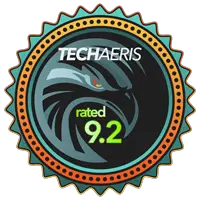 I’ve been a huge fan of the Assassin’s Creed series ever since the first one almost a decade ago (geez, has it been that long?). Not only did I enjoy the play style, but I found the attention to history and the inclusion of historical figures fascinating. Sure, there have been a few misses along the way. I never really got that far into Assassin’s Creed IV: Black Flag, somehow missed Assassin’s Creed Rogue, and I totally skipped Assassin’s Creed Unity. While I thoroughly enjoyed Assassin’s Creed Syndicate, I was glad that Ubisoft decided to take a release break and wait two years before releasing this year’s addition to the series. We didn’t get our review code until a couple days before the game launched and have delayed writing it up a bit while waiting for the Xbox One X release.
I’ve been a huge fan of the Assassin’s Creed series ever since the first one almost a decade ago (geez, has it been that long?). Not only did I enjoy the play style, but I found the attention to history and the inclusion of historical figures fascinating. Sure, there have been a few misses along the way. I never really got that far into Assassin’s Creed IV: Black Flag, somehow missed Assassin’s Creed Rogue, and I totally skipped Assassin’s Creed Unity. While I thoroughly enjoyed Assassin’s Creed Syndicate, I was glad that Ubisoft decided to take a release break and wait two years before releasing this year’s addition to the series. We didn’t get our review code until a couple days before the game launched and have delayed writing it up a bit while waiting for the Xbox One X release.
On that note, our Assassin’s Creed Origins review takes a look at the latest in the series, and after having played for awhile am glad that Ubisoft took that extra development time.
Story
Even though it’s the tenth game in the franchise, Assassin’s Creed Origins takes us back to the beginning and to ancient Ptolemaic Egypt. This time around, you start off the game playing as Bayek who is a Medjay as opposed to the Assassins we’re used to seeing in the series. Interestingly enough, given Ubisoft’s dedication to historical accuracies in the Assassin’s Creed franchise, I looked up both Ptolemaic Egypt and Medjays to learn more about them. According to Wikipedia, the Ptolemaic Kingdom lasted from 305 BC to 30 BC (which fits the story I’ve experienced so far). Medjays were an “elite paramilitary police force […] and protectors of areas of Pharaonic interest” and, oddly enough, aren’t mentioned after 1077 BCE. While it’s making for a great storyline so far, it’s odd that the timing would be off. Perhaps once I complete the main storyline, it’ll make sense, but I digress.
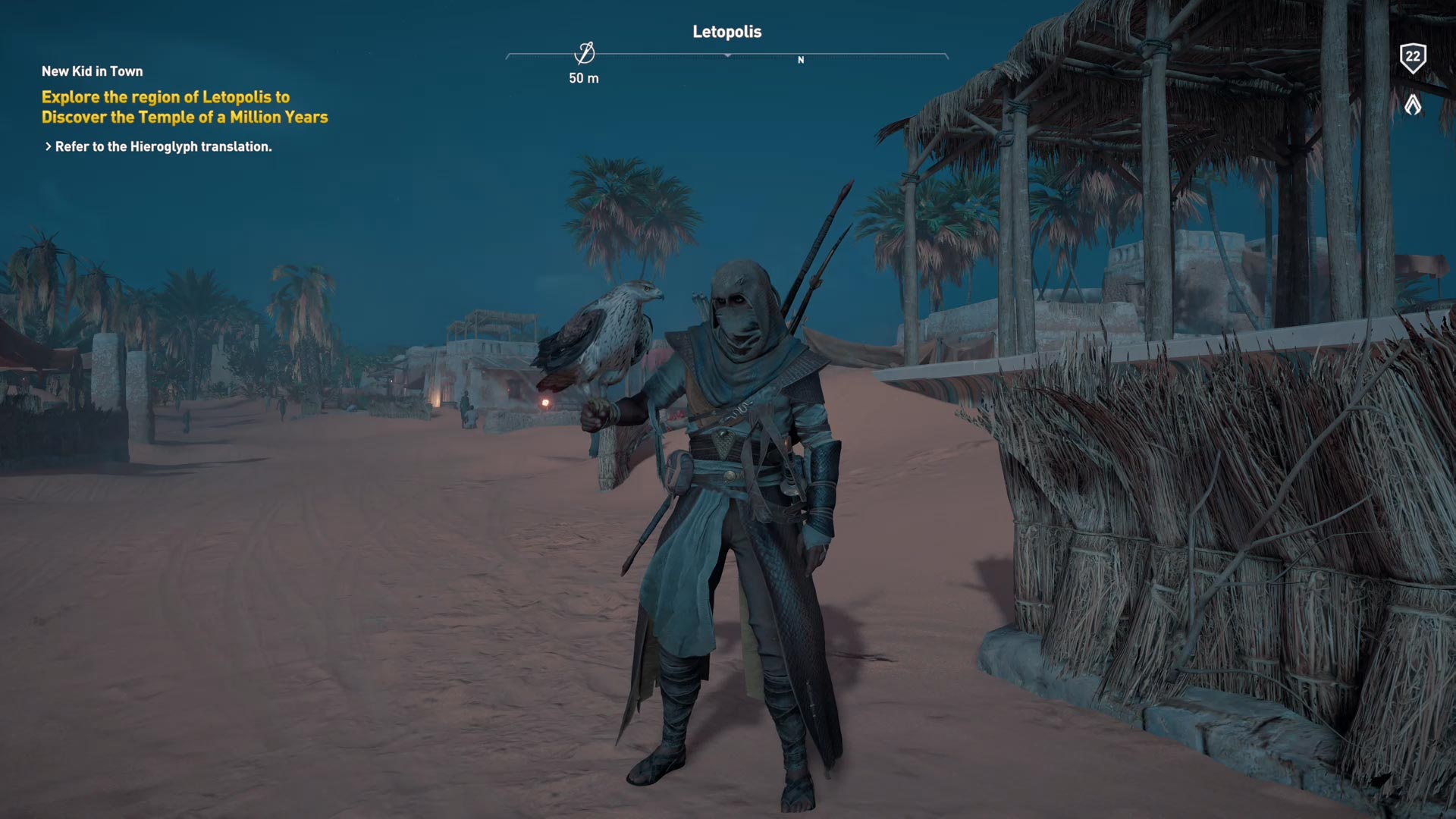
So where were we… ah, yes… Bayek. The game starts off with a prologue and without getting spoilery, you’re introduced to Bayek and certain events that lead him towards his present questline and specific targets which carry throughout the rest of the game. The more you uncover as Bayek, the more you also start becoming a “defender of the people” which of course leads to multiple side quests and paths you can take.
So far I’ve played just over 20 hours and feel like I’ve barely scratched the surface of the main storyline. I do think I’m progressing along nicely, but in typical Assassin’s Creed fashion, I keep getting sidetracked by the side quests — which isn’t a bad thing. Along with the main story, the side quests in Assassin’s Creed Origins are — for the most part — interesting quests that I feel that I’d want to do as Bayek. As such, there is plenty to be done in Ptolemaic Egypt, not to mention doing the side quests also helps you level up and have an easier go at the main quest line. I’m definitely looking forward to seeing how this origin story concludes…
In addition to the main and side quests, Ubisoft recently added Trials of the Gods events. The first event has you taking on Anubis for gear rewards, and the suggested level is 40 (which is the highest you can currently achieve). While these events — which are essentially glitches in the Animus — are only a week long, Ubisoft has confirmed that if you miss taking on a specific god during one event, they will be returning at a later date.
Unlike previous Assassin’s Creed outings, there isn’t much at all to the present day tie-in. You get a glimpse relatively early in the game, but aside from that, not much else happens in the present aside from being able to access case files and backstory from assorted files at any time in the menu.
Gameplay
At first glance, the gameplay is pretty similar to previous Assassin’s Creed games. Using a map-based progress system, you head towards the nearest main mission, pick up side missions along the way, and infiltrate, stealth, or just blatantly straight up attack and defeat your enemies. Of course, you’ll want to find as many synchronization points as you can to make mission finding easier, not to mention upgrading the perception of Senu — your eagle companion.
Combat, for starters, has been changed up a bit for this game and it feels more involved and, at times, a bit more difficult. Certain enemies require specific counters or moves to break their defenses and jumping an enemy from the shadows or above doesn’t always result in an insta-kill. That’s not to say it’s a bad thing and it certainly makes combat a bit more realistic and believable. Combat while on horse or camel still takes some getting used to and feels a bit fast and dizzying — not to mention the fact that you can face backward and attack enemies behind you while your mount is running in the opposite direction.
Some quests also involve an investigative aspect to them and require you carefully examine your surroundings for clues which, when close enough, are pointed out with a small floating Eye of Horus symbol. Another series of quests have you gazing at the sky trying to find specific constellations, just to further mix things up.
The loot/inventory system is also different than previous games and is not only better laid out but also features armour, weapons, and tools of different rarities, and you can sell or dismantle gear you no longer use for crafting materials. The crafting materials can also be found out in the world while exploring and questing and are used to level up various attributes like your hidden blade damage or quiver capacity.
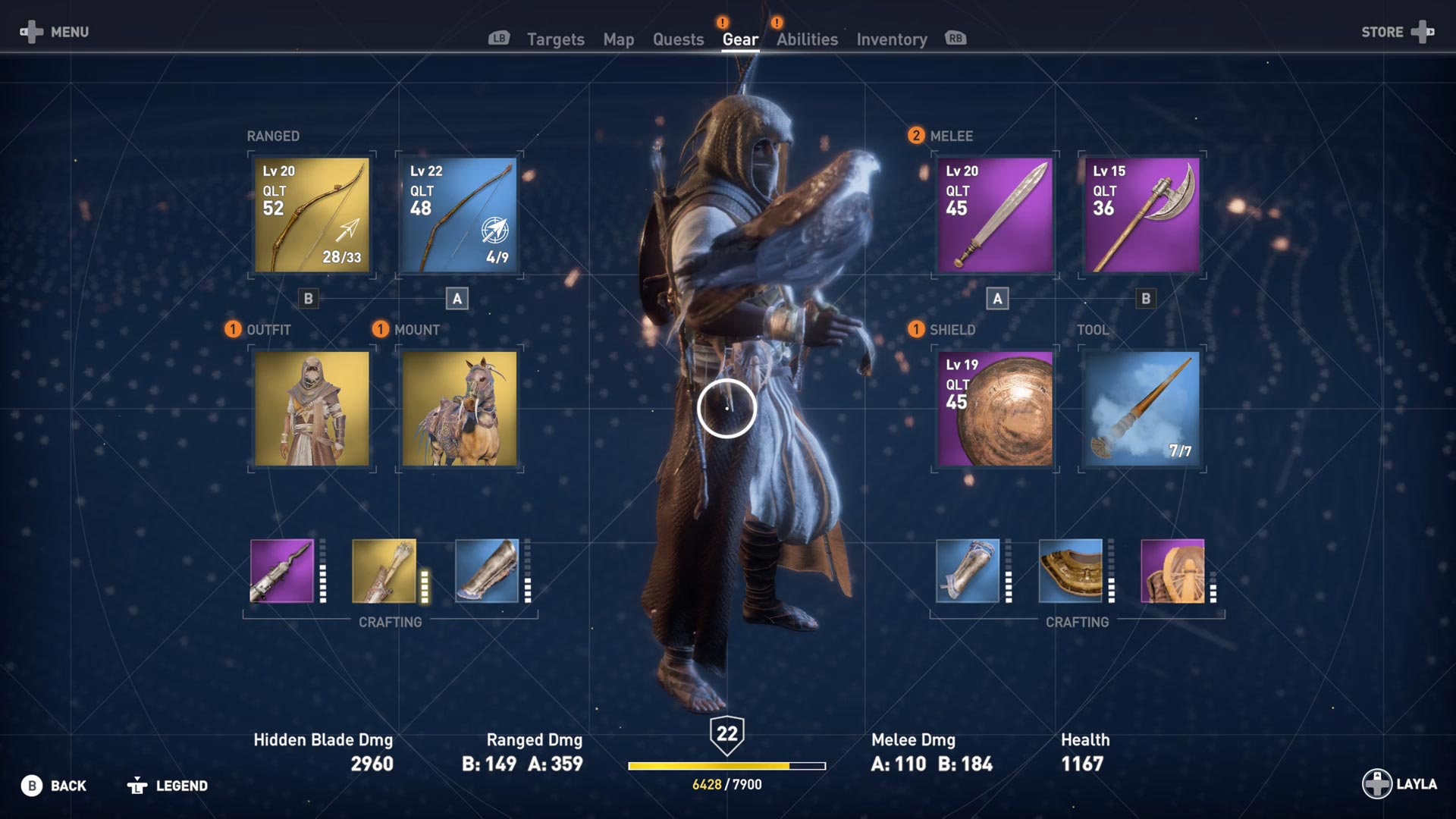
As you complete quests, you’ll receive some XP which, obviously, levels you up. Each time you level up, you can assign one or more ability points to a specific skill in one of three trees: Hunter, Warrior, or Seer. Depending on which playstyle you like, you’ll likely follow the majority of one tree before starting on a second. Each skill costs either 1, 2, or 3 skill points so sometimes it’s wise to save up for a better skill than spending them on lower tiered skills. As is usually the norm, you can only unlock certain skills after you’ve unlocked the skills below them in the tree.

Another addition to Assassin’s Creed Origins really reminded me of the Far Cry series (another favourite franchise of mine). While roaming around ancient Egypt, Bayek occasionally comes across camps which he can attack. Each camp has a specific set of goals — like killing one or more captains — and a set number of hidden loot items to find. Senu is instrumental in spotting enemies and looking for the hidden loot, not only in the camps but throughout the game as well.
While there is no multiplayer this time around, you will occasionally come across a fallen comrade and if you chose to, can accept a side quest to avenge their death and pick up some extra XP.
The control scheme is pretty easy to pick up on and you can choose between two different controller layouts to suit your playstyle. Personally, I’ve had no issues using the default controller layout.
Even with all the changes and additions, this still feels very much like an Assassin’s Creed title and the additions are definitely welcomed and needed ones to keeping the franchise fresh.
Graphics
When I first fired up Assassin’s Creed Origins on my Xbox One and my 106″ projection screen, I was pleased with the vastness and attention to detail, not only in the towns but out in the open world as well. Character animations are better than previous games in the series, and the movement of both human and animal characters across Egypt are pretty well done. Another reason for a bit of a delay in getting this review out earlier was, of course, the impending release of the Xbox One X console (our Techaeris review is coming soon). Having decided to preorder one at the last minute and currently having a 4K projector to review, this seemed like one of the Xbox One X Enhanced games I had to try given it was going to be getting the 4K CBR 30FPS HDR treatment.

It was definitely worth the wait. Period.
The first time I fired up Assassin’s Creed Origins on the Xbox One X after the November 7th patch, I was floored at the difference between the Xbox One version and the updated Xbox One X Enhanced version. Even though it doesn’t actually run at native 4K and upscales instead, textures and landscapes are noticeably crisper and clearer. Colours are richer and more vibrant due to the HDR support as well. Upon getting on my horse for the first time on the new console, I couldn’t help but notice the individual strands of hair on the horse’s tail that weren’t as apparent as before.
In addition, everything in the menus is more crisp and sharp due to the increased resolution.
While I haven’t encountered any major issues with graphics in the game, there has been the odd occurrence of weird clipping and some of the mouth movements are off a bit from the vocals but nothing major and nothing often enough to detract from the overall experience.
Sound
From the background music, while traversing across the Egyptian landscape, to the sound effects of combat and the voice acting, the sound design and execution are pretty solid in Assassin’s Creed Origins. The background music isn’t overbearing and fits the current mood quite well and the arrows or sword and shields clanging enhance the combat scenes nicely. As mentioned previously, while the voices don’t always line up with the mouths, the voice acting is pretty solid and believable as well.
While the sound was great on a 5.1 surround sound system, playing the game with a headset and Windows Sonic enabled took it up a notch, making the experience that much better and more immersive.
Price/Value
Like most games these days, there are three editions of Assassin’s Creed Origins: Standard, Deluxe, and Gold. The Standard will set you back the usual $59.99USD/$79.99CAD while the Deluxe (which includes an extra mission and a gear pack) runs $69.99USD/$89.99CAD. Finally, the Gold Edition includes the aforementioned Deluxe mission and gear pack, as well as the Season’s Pass, an extra weapon, and the recently released Roman Centurion weapon/mount pack. The Season’s Pass includes another gear pack which will be released later this month, as well as two expansions planned for next year. The Gold Edition will set you back $99.99USD or $139.99CAD (not quite sure how that currency conversion worked out).
Based on my experiences so far with the game, it’s definitely worth purchasing at least the Standard Edition, although in the end the Season Pass included in the Gold Edition will give you the most bang for your buck if you plan being lost in Ptolemic Egypt for any amount of time to come.
Wrap-up
While most of the Assassin’s Creed entries have been fairly solid, recent stumbles forced Ubisoft to take a step back and re-examine the series after the previous launch. As a result, Assassin’s Creed Origins feels and plays like the grandest AC so far, both in gameplay and story. If you’ve played previous games in the series, you will no doubt enjoy Assassin’s Creed Origins with the attention to detail and changes in gameplay and game mechanics.

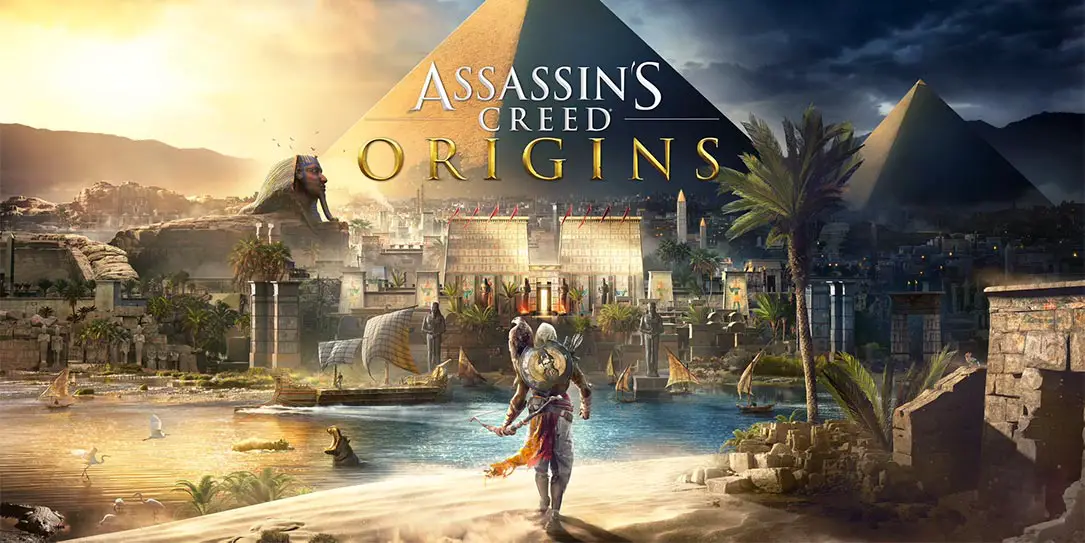








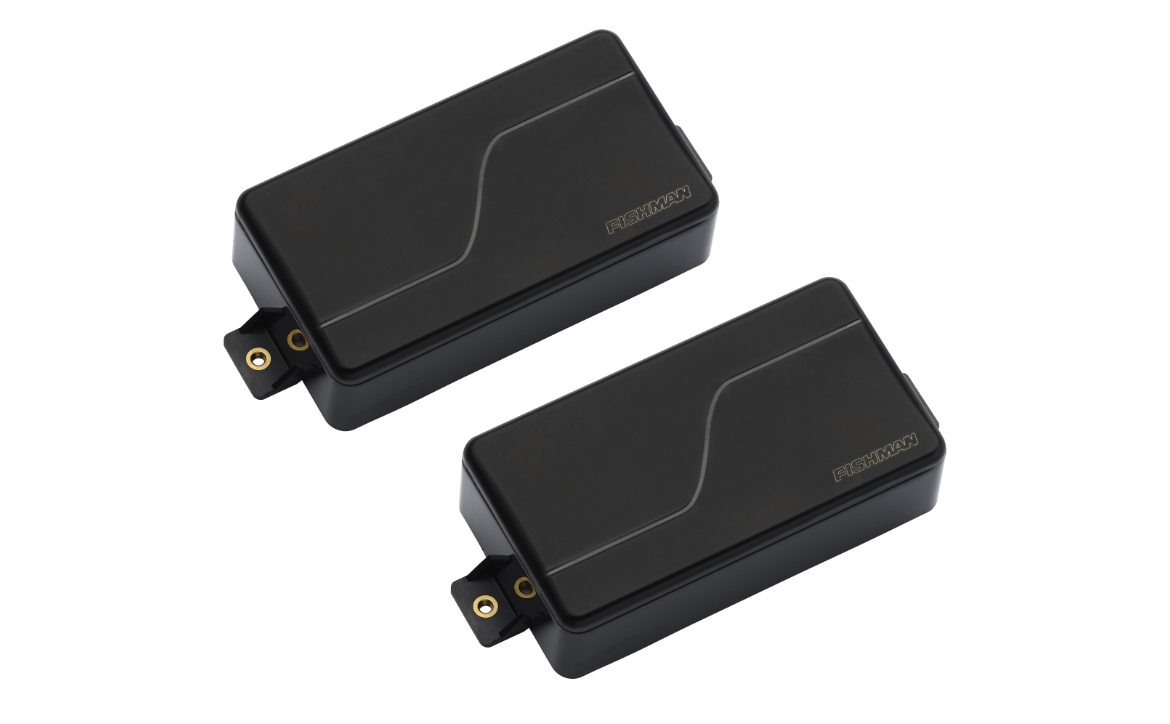
Comments are closed.